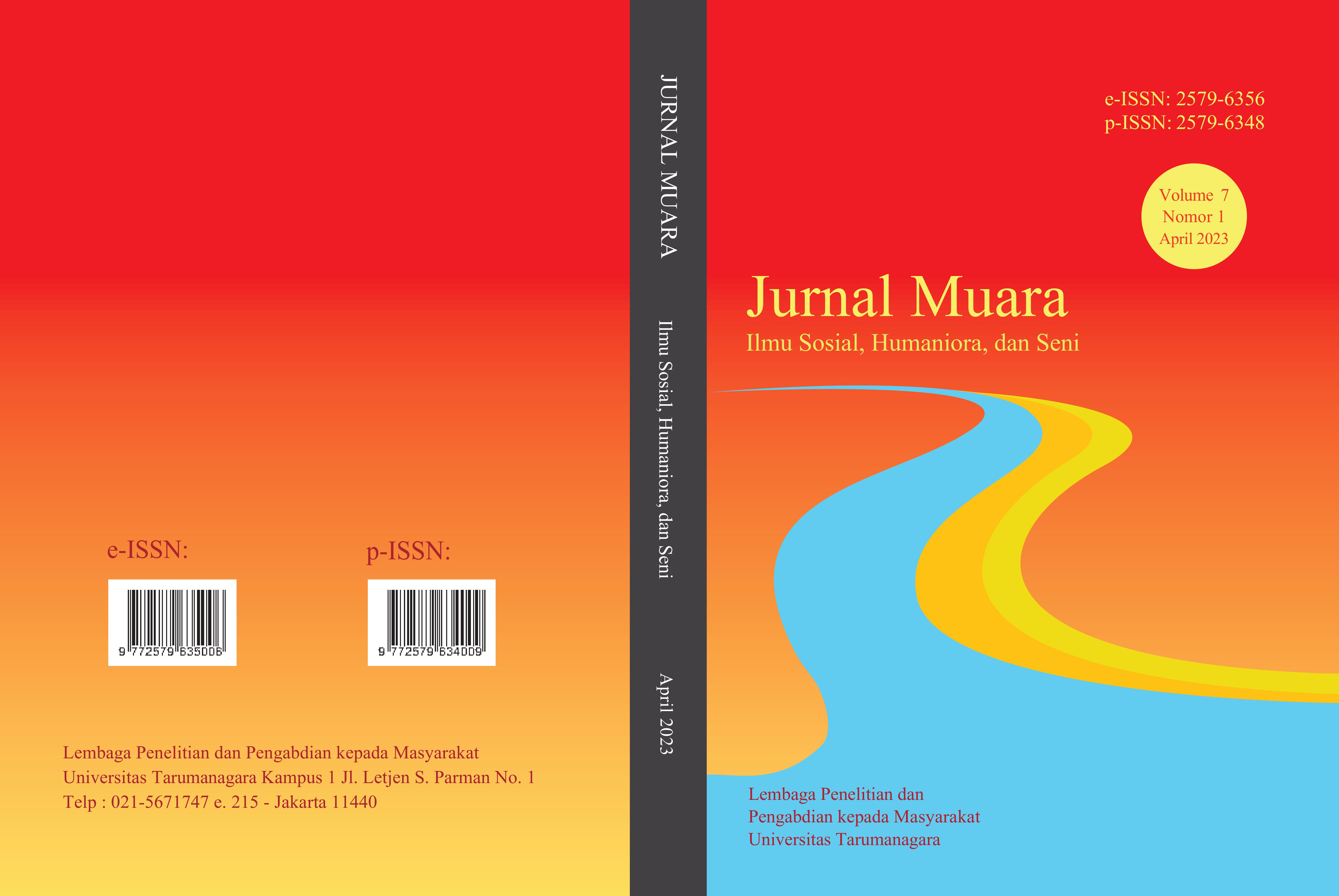EMOTIONAL EATING SEBAGAI STRATEGI KOPING STRES PADA MAHASISWA TINGKAT AKHIR DI JAKARTA
Main Article Content
Abstract
Mahasiswa merupakan salah satu kelompok masyarakat yang tidak terhindar dari stres. Hal ini juga dirasakan oleh mahasiswa tingkat akhir yang memiliki tanggung jawab untuk belajar, menuntaskan beban sks, dan menyelesaikan skripsi atau tugas akhir sebagai salah satu syarat kelulusan. Dalam menjalani tanggung jawab tersebut tentunya tidak terhindar dari kesulitan maupun tantangan yang dapat menimbulkan stres. Cara individu dalam menghadapi dan merespons stres pun berbeda-beda, salah satunya yaitu dengan mengonsumsi makanan secara kurang terkendali sebagai respons terhadap emosi negatif seperti depresi, cemas, marah atau frustasi, stres, dan bosan yang disebut sebagai emotional eating. Perilaku ini dalam jangka panjang dapat menimbulkan berbagai dampak negatif. Dengan mempertimbangkan dampak buruk yang dapat ditimbulkan oleh emotional eating, maka penelitian ini bertujuan untuk mengetahui kedua hubungan tersebut. Penelitian ini merupakan jenis penelitian kuantitatif dengan menggunakan teknik nonprobability sampling, yaitu convenience sampling dan pengambilan sampel dilakukan secara daring. Partisipan dalam penelitian ini berjumlah 231 mahasiswa dan mahasiswi di perguruan tinggi negeri dan swasta di Jakarta dengan rentang usia 20 - 24 tahun. Adapun alat ukur yang digunakan dalam penelitian ini yaitu Perceived Stress Scale (PSS) yang dikembangkan Cohen et al. (1983) dan Dutch Eating Behavior Questionnaire (DEBQ) yang dikembangkan Van Strien et al. (1986). Hasil penelitian ini menunjukkan terdapat hubungan positif dan signifikan antara stres dan emotional eating dengan nilai r = .409, p = .000 < .01. Hal ini berarti semakin tinggi stres, maka semakin tinggi pula emotional eating.
Article Details
Section

This work is licensed under a Creative Commons Attribution-NonCommercial-ShareAlike 4.0 International License.
This work is licensed under a Jurnal Muara Ilmu Sosial, Humaniora, dan Seni Creative Commons Attribution-ShareAlike 4.0 International License.References
Baghurst, T., & Kelley, B. C. (2013). An examination of stress in college students over the course of a semester. Health Promotion Practice, 15(3), 438-447. https://doi.org/10.1177/1524839913510316
Bennett, J., Greene, G., & Schwartz-Barcott, D. (2013). Perceptions of emotional eating behavior. A qualitative study of college students. Appetite, 60, 187-192. https://doi.org/10.1016/j.appet.2012.09.023
Cohen, S., Kamarck, T., and Mermelstein, R. (1983). A global measure of perceived stress. Journal of Health and Social Behavior, 24, 386-396. https://www.das.nh.gov/wellness/docs/percieved%20stress%20scale.pdf
Debeuf, T., Verbeken, S., Van Beveren, M-L., Michels, N., & Braet, C. (2018). Stress and eating behavior: A daily diary study in youngsters. Frontier Psychology, 9. https://doi.org/10.3389/fpsyg.2018.02657
Emond, M., Ten, E. K., Kosmerly, S., Robinson, A. L., Stillar, A., & Van Blyderveen, S. (2016). The effect of academic stress and attachment stress on stress-eaters and stress-undereaters. Appetite, 100, 210–215. https://doi.org/10.1016/j.appet.2016.01.035
Evers, C., Dingemans, A., Junghans, A. F., & Boeve, A. (2018). Feeling bad or feeling good, does emotion affect your consumption of food? A meta-analysis of the experimental evidence. Neuroscience and Biobehavioral Reviews, 92, 195-208. https://doi.org/%2010.1016/j.neubiorev.2018.05.028
Folkman, S. (Ed.). (2011). The oxford handbook of stress, health, and coping. Oxford University Press. https://doi.org/10.1093/oxfordhb/9780195375343.001.0001
Frayn, M., Livshits, S., & Knäuper, B. (2018). Emotional eating and weight regulation: A qualitative study of compensatory behaviors and concerns. Journal of Eating Disorders, 6(1). https://doi.org/10.1186/s40337-018-0210-6
Galan, N. (2018, Januari 15). How do I stop eating?. Medical News Today. https://www.medicalnewstoday.com/articles/320935
Gori, M., & Kustanti, C. Y. (2019). Studi kualitatif perilaku emotional eating mahasiswa tingkat IV program studi sarjana keperawatan di Stikes Bethesda Yakkum Yogyakarta. Jurnal Kesehatan, 6(2). https://doi.org/10.35913/jk.v6i2.120
Herawati, K., & Gayatri, D. (2019). The correlation between sleep quality and levels of stress among students in Universitas Indonesia. Enfermeria Clinica, 29(2). https://doi.org/:10.1016/j.enfcli.2019.04.044
Kemp, E., Bui, M., & Grier, S. (2013). When food is more than nutrition: Understanding emotional eating and overconsumption. Journal of Consumer Behaviour, 12, 204-213. https://doi.org/10.1002/cb.1413
Klump, K. L., Keel, P. K., Racine, S. E., Burt, S. A., Neale, M., Sisk, C. L., Boker, S., & Hu, J. Y. (2013). The interactive effects of estrogen and progesterone on changes in emotional eating across the menstrual cycle. Journal of Abnormal Psychology, 122(1), 131-137. https://doi.org/10.1037/a0029524
Konttinen H. (2020). Emotional eating and obesity in adults: The role of depression, sleep and genes. Proceeding of the Nutrition Society, 79(3), 283-289. https://doi.org/10.1017/S0029665120000166.
Konttinen, H., Van Strien, T., Männistö, S., Jousilahti, P., & Haukkala, A. (2019). Depression, emotional eating and long-term weight changes: A population-based prospective study. International Journal of Behavioral Nutrition and Physical Activity, 16(1). https://doi.org/10.1186/s12966-019-0791-8
Ling, J., & Zahry, N. R. (2021). Relationships among perceived stress, emotional eating, and dietary intake in college students: Eating self-regulation as a mediator. Appetite, 163. https://doi.org/10.1016/j.appet.2021.105215
Maniam, J., & Morris, M. J. (2012). The link between stress and feeding behaviour. Neuropharmacology, 63(1), 97-110. https://doi.org/10.1016/j.neuropharm.2012.04.017
Mantau, A., Hattula, S., & Bornemann, T. (2018). Individual determinants of emotional eating: A simultaneous investigation. Appetite, 130, 93-103. https://doi.org/10.1016/j.appet.2018.07.015
Pascoe, M. C., Hetrick, S. E., & Parker, A. G. (2019). The impact of stress on students in secondary school and higher education. International Journal of Adolescence and Youth, 1-9. https://doi.org/10.1080/02673843.2019.1596823
Reichenberger, J., Schnepper, R., Arend, A. K., & Blechert, J. (2020). Emotional eating in healthy individuals and patients with an eating disorder: Evidence from psychometric, experimental and naturalistic studies. Proceedings of the Nutrition Society, 79(3), 290-299. https://doi.org/10.1017/S0029665120007004
Ribeiro, I. J. S., Pereira, R., Freire, I. V., de Oliveira, B. G., Casotti, C. A., & Boery, E. N. (2018). Stress and quality of life among university students: A systematic literature review. Health Professions Education, 4(2), 70-77. https://doi.org/10.1016/j.hpe.2017.03.002Seaward, B. L. (2018). Managing stress: Principle and strategies for health and well-being (9th ed.). Jones & Bartlett Learning, Amerika Serikat.
Silverthorn, D. E. (2019). Human physiology an integrated approach (7th ed.). Pearson, Amerika Serikat.
Sundström-Poromaa, I. (2018). The menstrual cycle influences emotion but has limited effect on cognitive function. Vitamins & Hormones, 17, 349-376. https://doi.org/10.1016/bs.vh.2018.01.016
Syarofi, Z. N., & Muniroh, L. (2019). Apakah perilaku dan asupan makan berlebih berkaitan dengan stress pada mahasiswa gizi yang menyusun skripsi?. Media Gizi Indonesia, 15(1), 38-44. https://doi.org/10.204736/mgi.v15i1
Van Strien, T., Frijters, J. E. R., Bergers, G. P. A., & Defares, P. B. (1986). The dutch eating behavior questionnaire (DEBQ) for assessment of restrained, emotional, and external eating behavior. International Journal of Eating Disorders, 5(2), 295-315. https://doi.org/10.1002/1098-108x(198602)5:2<295::aid-eat2260050209>3.0.co;2-t
WebMD. (n.d.). Emotional eating: Fedding your feelings. WebMD. https://www.webmd.com/diet/features/emotional-eating-feeding-feelings
